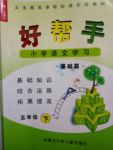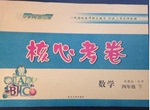题目内容
Along with global warming and the Ebola virus,this year, something far less life-and society-threatening also spiraled out of control:email.
It was long ago invented as something to make us more productive.But what productivity expert would ever say that it's a good thing that instead of working,we now“answer email? Or that on some days,I am unwilling to leave my desk to head into a meeting because it means taking my finger off the keyboard and knowing 1 will return to a flood of new messages waiting patiently for my total attention?
Some people struggle for“inbox zero”.But like many people,I now get so much junk mail that if I were to adopt such a goal,I would spend every workday doing nothing but deleting emails.To make sure nothing important gets buried,I have developed an embarrassinglv old system of keeping a pen-and-paper list of emails that need responses on a series of Post-It notes.As far back as 2007,Fred Wilson famously declared “email bankruptcy”.I'm close to doing the Same.
But I may not need to.I predict that 2015 will mark the beginning of the end of emails.Already, some tools have emerged(出现)over the years,like software Freedom which disables access to the Internet for chosen periods of time.Corporations have gradually been adopting stricter email policies:A few years ago,Volkswagen said it would stop sending emails from its servers to company-owned BlackBerrys after the end of its workday.
But this great hope is largely the optimist in me speaking,and I give this prediction small chances compared to some of our others.As Tony Hsieh once told me,the problem with email is that it is a“good—enough”solution.Some technologies stay around just because there isn’t anything better.It’s probably right.But my wish is that 2015 is the year when truly effective email management solutions go from good to great-and that email volume goes from crazy to reasonable.We’ll a11 be better for it.

1.The underlined word “spiraled” in Paragraph l probably means “_____________”.
A.increased rapidly B.moved in circle
C.changed unexpectedly D.appeared suddenly
2.The writer is unwilling to attend a meeting because____________.
A.he has to return with quantities of emails
B.answering emails calls for great attention
C.more emails will flood in waiting for him to check
D.he doesn’t want to take his fingers off the keyboard
3.From Paragraph 3,we may infer that____________.
A.the goal “inbox zero” is hard to obtain
B.the writer is devoted to deleting emails
C.pens and paper are highly favored at work
D.Fred Wilson famously declared “email bankruptcy”
4.The writer may agree that____________.
A.emails will come to an end
B.emails will still hold a place
C.existing email management is perfect
D.emails will never be sent to BlackBerrys
1.A
2.C
3.A
4.B
【解析】
试题分析:本文主要介绍电子邮件的末日开始到来 ,电子邮件不会在2015年或未来某个节点很快死掉,但从这一年开始,它的替代产品可能会飞速发展。
1. 推理判断题,本文第一段Along with global warming and the Ebola virus,this year, something far less life-and society-threatening also spiraled out of control:email. 电子邮件虽然不会危及生命与社会,但至少对我来说,它和全球变暖、埃博拉病毒、政治僵局一样,在今年变得有些失控。可以推断出电子邮件就像全球变暖、埃博拉病毒、政治僵局一样传播速度快,数量也急速增加。故选A。
2. 细节理解题,本文第二段I am unwilling to leave my desk to head into a meeting because it means taking my finger off the keyboard and knowing 1 will return to a flood of new messages waiting patiently for my total attention? 有的时候,我很不愿离开办公桌去开会,因为这意味着我的双手要离开键盘,而我很清楚,等我开会回来后,就会有堆积如山的新邮件耐心地等待我去耗费全部的精力来回复。考虑到这些,还有哪一位生产力专家会说电子邮件是个好东西?可以知道选C。
3. 推理判断题,本文第三段Some people struggle for“inbox zero”.But like many people,I now get so much junk mail that if I were to adopt such a goal,I would spend every workday doing nothing but deleting emails. 有些人正努力实现“收件箱零邮件”,但是和许多人一样,我的邮箱里有非常多的垃圾邮件和来路不明的邮件,如果我要清空收件箱,那么我每天都要把所有的工作时间都花在删除邮件上了。说明要实现“收件箱零邮件”,是很困难的,故选A。
4. 推理判断题,本文第四段But I may not need to.I predict that 2015 will mark the beginning of the end of emails. 但也许我不需要。照我预测,2015年正是电子邮件的替代方案开始发展之时。可以推断出我还是认为电子邮件仍旧会被替代。故选B。
考点:考查科学性文章阅读。

 小学学习好帮手系列答案
小学学习好帮手系列答案 小学同步三练核心密卷系列答案
小学同步三练核心密卷系列答案